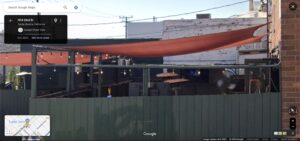The Biden administration is facing scrutiny from Republican lawmakers following the discovery that Mohammed Makhlouf, a cousin of Syrian dictator Bashar al-Assad is currently in the United States. Assad and his family members have been under heavy U.S. sanctions for years, sparking questions around Makhlouf’s visa approval and whether it is a breach of sanctions. The controversy erupted after Makhlouf was spotted in an Instagram post, placing him at a bar in Santa Monica, California.`
Representatives Kevin Hern (R., Okla.) and Joe Wilson (R., S.C.) have initiated an investigation into how Makhlouf was allowed entry into the United States. “This is outrageous. This man’s father was sanctioned since the Bush administration for being the most corrupt oligarch in Syria,” Rep. Wilson told the Free Beacon. Congressman Wilson is a member of the House Armed Services and Foreign Affairs Committees. Wilson, who recently championed legislation to extend sanctions on the Assad family, expressed his disbelief at the apparent oversight. “The fact that his son can waltz into this country shows that both our immigration and sanction laws are broken.”
This incident is not an isolated one. Mohammed Makhlouf’s brother, Ali, was previously seen in Los Angeles in 2021. This pattern has rekindled fears that the Biden administration is eager to normalize relations with the Assad regime, a regime that is widely agreed to have committed some of the worst war crimes of the 21st century.
Rep. Hern, chair of the Republican Study Committee, did not mince words in his criticism. “The Assad family in the U.S. is a direct security risk, proving the Biden administration is asleep at the wheel on American national security,” Hern said.
A State Department spokesperson refused to comment, then later reiterated “Every prospective traveler to the United States undergoes extensive security screening,” emphasizing that visas are only issued after thorough vetting.
A senior GOP congressional aide, speaking anonymously, said this response indicates the State Department is only “doing damage control”. The Aide also confirmed that Congress is pursuing a comprehensive investigation into the circumstances surrounding Makhlouf’s visa approval.
The House has already passed legislation, spearheaded by Rep. Wilson, to extend sanctions to include relatives of Assad and to make it impossible for the US government to normalize relations with Assad. However, the bill remains stalled in the Senate Foreign Affairs Committee, chaired by Sen. Ben Cardin (D., Md.).
The Instagram post that triggered the controversy continues to be a focal point. Public and open-source information suggests that the photo was taken in a bar in Santa Monica, California.
The administration’s recent blocking of the Anti-Normalization Act and its silence on the death of Majd Kamalmaz raise questions about Biden’s intentions moving forward. The key issue now is whether this incident will prompt a tightening of sanctions enforcement or a reevaluation of U.S. visa policies regarding individuals linked to the Assad regime. While Biden’s actions suggest a particular direction, the American public still has the opportunity to influence the administration’s approach through persistent pressure.






















